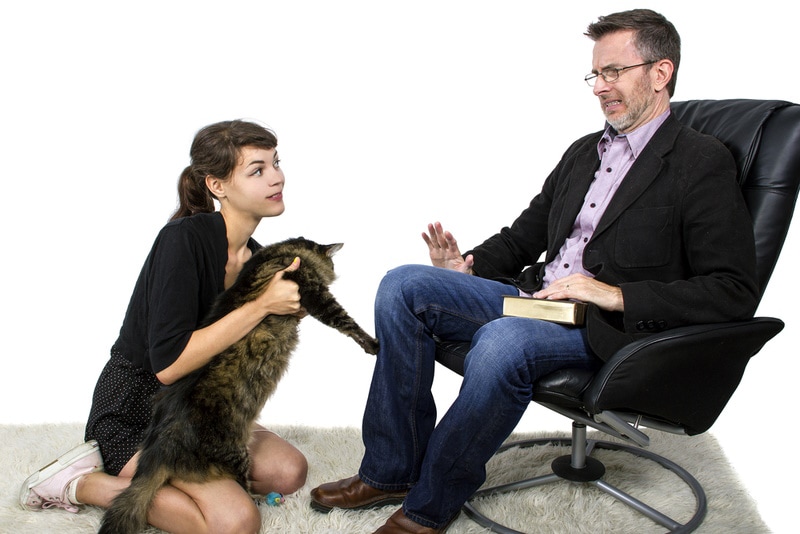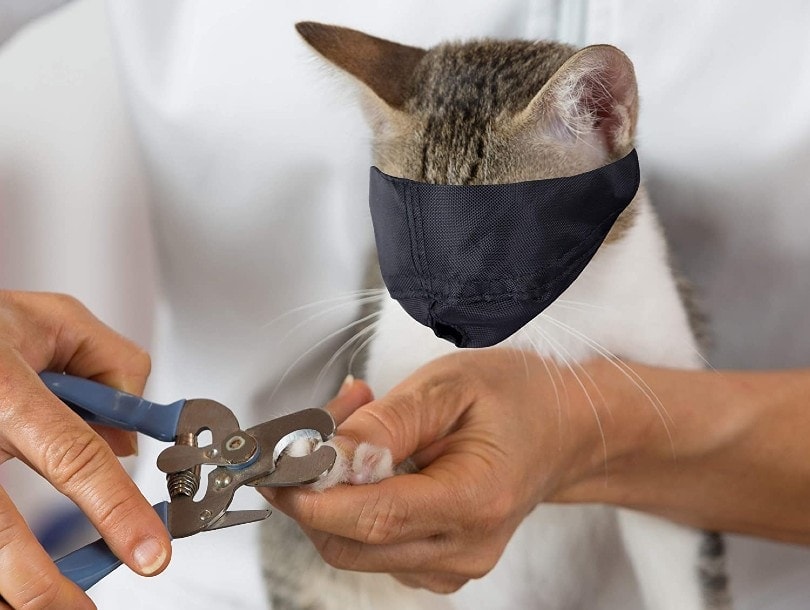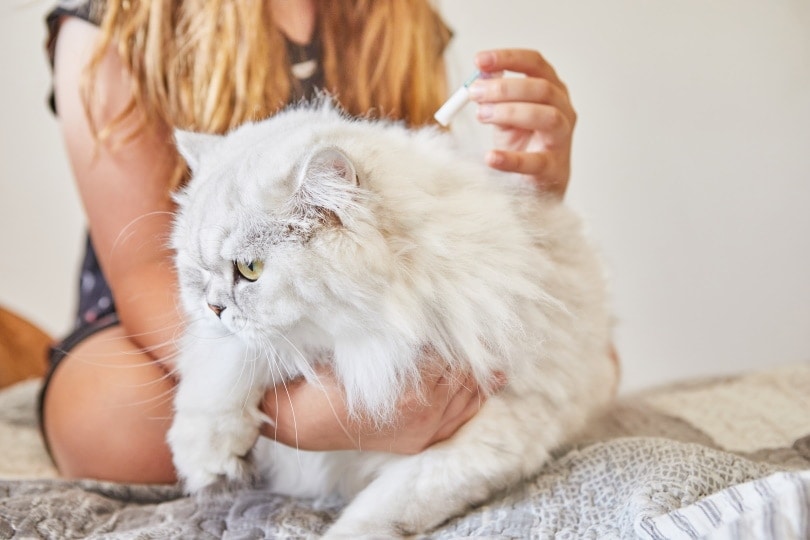Understanding Fear of Cats (Ailurophobia) In People

Updated on

Click to Skip Ahead
To many people, seeing a cat is a positive experience or, at worst, a neutral one. But to sufferers of ailurophobia, seeing or even thinking about cats can cause serious anxiety and panic. Ailurophobia is far more severe than a dislike of cats, or a desire to give them a wide berth because of a previous negative experience.
Ailurophobia can take over a person’s life as they are planning ways to avoid cats or thinking about encounters with them. It can cause physiological and very real symptoms including increased heart rate and sweating. It may lead to panic attacks. Typical causes of ailurophobia include being attacked by a cat when young or it could be inherited from a parent. However, it is possible to develop phobias with no obvious triggering cause. Treatments include exposure therapy and cognitive behavioral therapy, or sufferers may be prescribed medication to help ease the symptoms.
What Is Ailurophobia?
Ailurophobia, also known as gatophobia or felinophobia, is an intense fear of cats. It can be triggered when in the presence of cats, but it may also cause feelings of panic and anxiety when a sufferer even thinks about cats or if they see them on TV or hear them discussed. It is much more intense than a dislike of cats or even feelings of fear when around cats.

Symptoms
The symptoms of ailurophobia are similar to those of all phobias, except that they occur when the sufferer sees or potentially even thinks about cats. They include:
- Agitation
- Dizziness
- Sweating
- Dry mouth
- Breathing problems
- Chest pain
- Chest tightness
- Shaking
- Upset stomach
- Panic
Phobias can take over a person’s life so that they are thinking about the subject of their phobia and any potential occasions when they might meet or be in the presence of cats.
Causes
Although it is not exactly clear what causes phobias, the most likely cause of ailurophobia is that the sufferer endured a negative experience with cats when they were young. However, phobias can be learned from others, so children of ailurophobia sufferers may develop it. In other cases, there are no recognizable or known causes of the phobia.

Possible Treatment
People that believe they may suffer from ailurophobia should be referred to a mental health professional, who can diagnose the problem. They will discuss how it affects the sufferer’s life and whether it causes any physical or physiological symptoms. They may recommend one of the following treatment options:
- Exposure Therapy – Exposure therapy means gradually being exposed to the subject of a phobia. It should be conducted with the guidance of a mental healthcare practitioner to ensure that the exposure doesn’t worsen the problem, and the level of exposure will be gradually increased over time. Exposure therapy can essentially turn a harrowing experience, such as meeting a cat, into one that relaxes and soothes the individual.
- Cognitive Behavioral Therapy – Cognitive behavioral therapy first identifies the cause of the phobia and what triggers the phobic reactions before retraining the brain to react differently to the sight or thought of cats. Cognitive behavioral therapy will culminate with some exposure to cats.
- Medication – Medication is typically used to help combat the symptoms of phobias, rather than treat the phobia itself. Beta blockers can help prevent an elevated heart rate while sedatives can decrease anxiety symptoms and panic attacks.
Why Is Fear of Cats Called Ailurophobia?
The word ailurophobia comes from the Greek words ailouros, which means cat, and phobos, which means fear. Sufferers are known as ailurophobes and other names for ailurophobia include felinophobia, elurophobia, gatophobia, and even cat phobia.
How Do I Overcome My Fear of Cats?
Several techniques and treatments can be used to treat phobias. The most common and typically the most effective is exposure therapy. Exposure therapy means exposing the sufferer to cats gradually. As they get used to minimal exposure, this is increased, and the process continues until they are able to handle any situation involving cats. Some forms of exposure therapy may teach the sufferer to experience positive symptoms around cats, rather than negative ones.

Final Thoughts
Ailurophobia is an intense fear of cats, and its symptoms include panic and anxiety in the presence of cats, as well as when thinking about cats. These feelings can take over the sufferer’s life because they will be constantly thinking about when they might meet cats and what they will be able to do to prevent it.
Treatments involve the intervention of a mental health professional who can offer exposure therapy or cognitive behavioral therapy, while prescription medications can also be used to help treat the symptoms of this phobia.
Featured Image Credit: Rommel Canlas, Shutterstock











